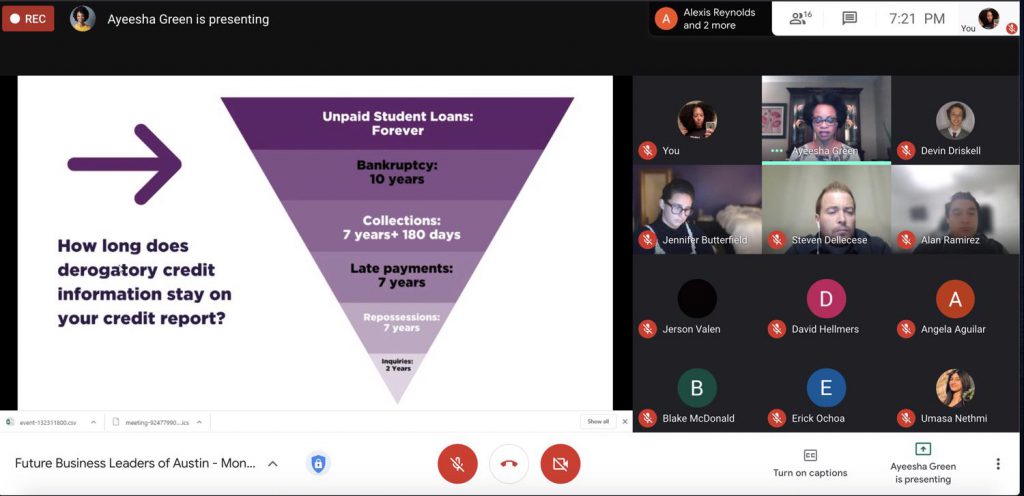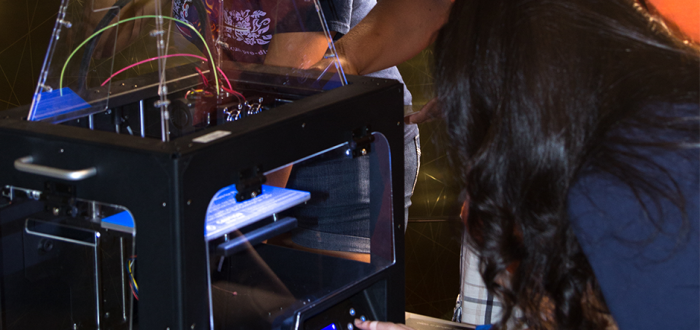Story by Nathan Lu
Graphic by Claudia Hinojos
When first enrolling in Austin Community College, very few students recognize the importance and benefits of joining a student organization. Although it may appear that spending numerous hours in meetings is a waste of time when other obligations such as school, work, and family take precedence, joining a student organization like the Computer Science Club is one of the best decisions that a student can make.
The Computer Science Club (CSC) is one of ACC’s most active and largest clubs, where students interested in programming, technology, and software can share common interests, support each other, and work on projects that impact the community. Hani Kamee, a passionate Software Development major, joined the club during the Spring 2022 semester.
At first, Kamee was hesitant to join the club because he did not know what to expect from a tech-related student organization, but he quickly realized that it was one of the best decisions he had ever made. “I know for a fact that when you surround yourself with like-minded people, you will thrive and prosper, and that’s what I did,” Kamee said.
The group’s primary purpose is to provide a community where students from all backgrounds can experience the power of coding and support each other throughout the process. Although the club is geared toward Computer Science students, the group welcomes all students interested in technology.
Malik Rawashdeh, the club’s vice president, saw the expansion of the club first-hand, from a group of 50 students to an active community of 300+ members. By inviting professionals from the tech industry to speak during the club’s general meetings, members can learn from experts and visualize a clear path towards a job in software engineering.
“We’ve had a freelance web developer come in and talk about his day-to-day work, professors come in and speak about their graduate studies in machine learning and neural networks. The blockchain club at UT Austin gives an intro to cryptocurrency and the blockchain itself,” Rawashdeh said. Due to the COVID-19 pandemic, all club meetings have been entirely virtual, but the club has consistently grown in size while beginning to shift back towards in-person meetings.
Members of CSC aren’t just satisfied to be typical CS students either; instead, they go out of their way to build projects that impact the community. “Our first project was a website portfolio, where anyone interested in building a personal website could join and share work,” said Jason Kim, the club’s treasurer. The club has also organized a browser-based game, machine learning subgroup, and a discord bot, all projects outlined and created by club members.
One of the more notable projects the club has worked on is an overlay system to improve accessibility for disabled people concerning video games. In traditional first-person shooter games, sound and communication are vital to playing any game competitively. Club members knew that solving this problem would significantly bridge the gap between the disabled and gaming communities. The team created an overlay system to visualize sound in the form of visual cues on the screen and a detailed voice chat transcription service. By utilizing their knowledge of audio manipulation and native system manipulation, the team provided accessibility for the deaf and hard of hearing community and was able to see the impact of their work first-hand.
Additionally, CSC holds interview preparation events on a regular basis for members interested in preparing for the job acquisition process. “Through our tech-interview workshops and mock interviews, [students] were able to prepare themselves for the job searching process, and several of our members landed jobs at very well-known tech companies,” said Rawashdeh.
While the club recognizes that working on projects is essential, homework help is still at the core of what the club stands for. By building a diverse community of students with different skill sets, there is no question left unanswered, no matter how difficult the question is. “Every time I’ve asked for help, I got it,” said Kamee. The world of software engineering is one of the most technically challenging fields, but by collaborating with others, the Computer Science Club ensures that those who need help can receive it. The club hosts general meetings every week and has various club projects and events occurring throughout the week, free for anyone to attend.
The Computer Science Club welcomes students from all backgrounds and aims to foster a supportive and encouraging environment. Rawashdeh encourages anyone interested in coding to join CSC and experience the thriving community first-hand. “If there is one thing that I’ve learned from the club, it’s that coding is a collaborative effort. If you might not know something, somebody else probably does,” Kim said.
For further inquiries or questions, join their Discord channel today!






